| # | Title | Year | Place | Materials | Measurements | Practice / Format | Together With | Keywords | Weblinks |
| 33 | Exile. Ein Kunstheft – Jalta. Positionen zur jüdischen Gegenwart 05 | 2019 | Neofelis Verlag | Softcover, 19 x 26 cm, 204 Pages | editing | Micha Brumlik, Marina Chernivsky, Max Czollek, Hannah Peaceman, Anna Schapiro, Lea Wohl von Haselberg | Experiences of exile, Perspectives through exile, longing and belonging | Neofelis Verlag |
Exile. Ein Kunstheft — Jalta. Positionen zur jüdischen Gegenwart 05
Jalta steht für Positionen zur jüdischen Gegenwart. Für Vielstimmigkeit. Jalta ist auch der Versuch, Brücken zu schlagen – in eine Vergangenheit. Und in eine zu gestaltende Zukunft. Im Zentrum des fünften Hefts stehen mehrheitlich künstlerische Arbeitsweisen, die sich damit befassen, was es bedeutet, Teil zu sein und nicht Teil zu sein. Von Ibn Gabirol zur Gegenwartslyrik, von der Liturgie zur Gegenwartsbewältigung. Auf welche Weise beeinflussen und fundieren Exilerfahrungen die Entwicklung künstlerischer und kultureller Ausdrucksformen? Welche neuen Perspektiven ermöglicht das Exil? Und zu welchen jüdischen und nichtjüdischen Gegenwarten führt das? Den aufgeworfenen Fragen gehen Dichter*innen, bildende Künstler*innen und Wissenschaftler*innen aus ihren je eigenen Perspektiven nach. Es entsteht eine mobile Ausstellung, mit den Händen zu blättern, mit den Augen zu begehen, transportabel, auf- und ausstellbar an unterschiedlichen Räumen, zeitgleich oder versetzt.
Mit Beiträgen von Arielle Angel, Sivan Ben Yishai, Nino Biniashvili, Micha Brumlik, Max Czollek, Jason Francisko, Yael Frank, Atina Grossmann, Cecilia Haendler, Mudar Al Haggi, Michael Heinzmann, Lena Inowlocki, Uffa Jensen, Hannimari Jokinen, Adi Keissar, Zahava Khalfa, Sigmount Königsberg, Valentin Lutset, Andriy Lyubka, Ansgar Martins, Jeanine Meerapfel, Ministerium für Mitgefühl, Thi Nguyen, Hannah Peaceman, Werner Renz, Michael Rubenfeld, Magdalena Rubenfeld Koralewska, Anna Schapiro, Maya Schweizer, Gerhild Steinbuch, Leonie Wellmann, Mirjam Wenzel und Lea Wohl von Haselberg.
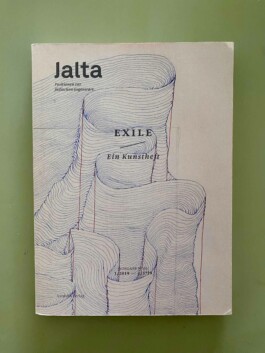
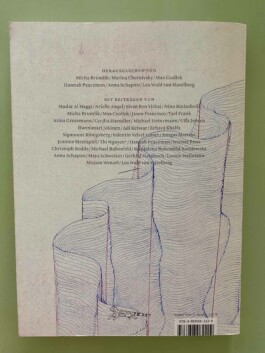
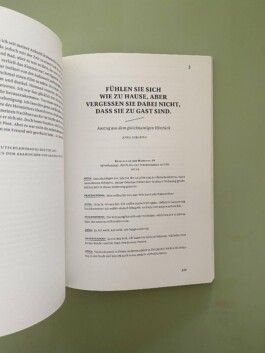
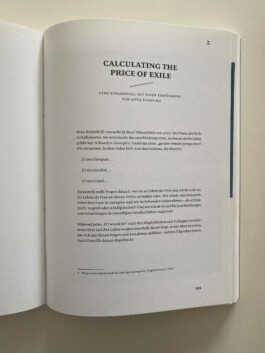
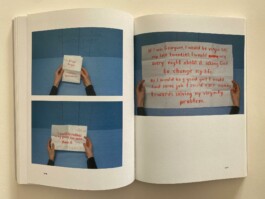
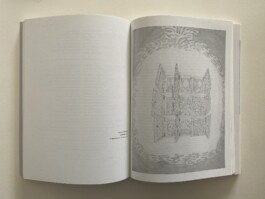
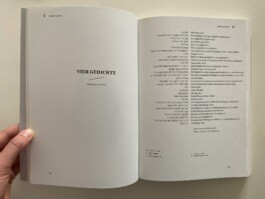
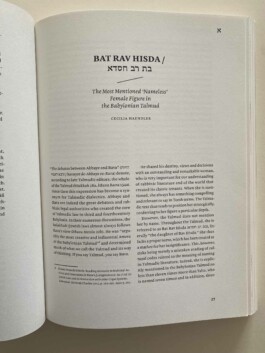
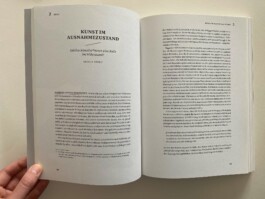
Exile. Ein Kunstheft — Jalta. Positionen zur jüdischen Gegenwart 05
Jalta is a magazine that appeared twice a year between 2017 and 2020; as of 2023, it appears semi-regularly in book form.
Jalta opens up a forum in which Jewish and non-Jewish voices can be heard. The various authors make often overlooked perspectives visible and establish connections between their positions. They articulate and develop critical positions and reflect current discussions and debates. Their contributions call into question socially mainstream narratives and power structures, they reflect the diversity of a post-migration society and show the potential for building alliances.
Jalta collects new positions and perspectives on a Jewish present, one that is predicated on the diversity of Jewish people living in Germany today.
In Jalta, academic texts, essays, literature and visual works of art all exist equally alongside one another. In this context, a wide range of cooperative projects have been developed — for example, a project with the Landeszentralen für Politische Bildung (Center for Political Education) and counseling centers for victims of racist and antisemitic violence. Other projects include various podium discussions in German-speaking contexts and the participation in a NSU-Tribunal.









| # | Title | Year | Place |
| 33 | Exile. Ein Kunstheft – Jalta. Positionen zur jüdischen Gegenwart 05 | 2019 | Neofelis Verlag |
| Materials | Measurements |
| Softcover, 19 x 26 cm, 204 Pages |
| Practice / Format | Together With |
| editing | Micha Brumlik, Marina Chernivsky, Max Czollek, Hannah Peaceman, Anna Schapiro, Lea Wohl von Haselberg |
| Keywords | Weblinks |
| Experiences of exile, Perspectives through exile, longing and belonging | Neofelis Verlag |
Exile. Ein Kunstheft — Jalta. Positionen zur jüdischen Gegenwart 05
Jalta steht für Positionen zur jüdischen Gegenwart. Für Vielstimmigkeit. Jalta ist auch der Versuch, Brücken zu schlagen – in eine Vergangenheit. Und in eine zu gestaltende Zukunft. Im Zentrum des fünften Hefts stehen mehrheitlich künstlerische Arbeitsweisen, die sich damit befassen, was es bedeutet, Teil zu sein und nicht Teil zu sein. Von Ibn Gabirol zur Gegenwartslyrik, von der Liturgie zur Gegenwartsbewältigung. Auf welche Weise beeinflussen und fundieren Exilerfahrungen die Entwicklung künstlerischer und kultureller Ausdrucksformen? Welche neuen Perspektiven ermöglicht das Exil? Und zu welchen jüdischen und nichtjüdischen Gegenwarten führt das? Den aufgeworfenen Fragen gehen Dichter*innen, bildende Künstler*innen und Wissenschaftler*innen aus ihren je eigenen Perspektiven nach. Es entsteht eine mobile Ausstellung, mit den Händen zu blättern, mit den Augen zu begehen, transportabel, auf- und ausstellbar an unterschiedlichen Räumen, zeitgleich oder versetzt.
Mit Beiträgen von Arielle Angel, Sivan Ben Yishai, Nino Biniashvili, Micha Brumlik, Max Czollek, Jason Francisko, Yael Frank, Atina Grossmann, Cecilia Haendler, Mudar Al Haggi, Michael Heinzmann, Lena Inowlocki, Uffa Jensen, Hannimari Jokinen, Adi Keissar, Zahava Khalfa, Sigmount Königsberg, Valentin Lutset, Andriy Lyubka, Ansgar Martins, Jeanine Meerapfel, Ministerium für Mitgefühl, Thi Nguyen, Hannah Peaceman, Werner Renz, Michael Rubenfeld, Magdalena Rubenfeld Koralewska, Anna Schapiro, Maya Schweizer, Gerhild Steinbuch, Leonie Wellmann, Mirjam Wenzel und Lea Wohl von Haselberg.









Exile. Ein Kunstheft — Jalta. Positionen zur jüdischen Gegenwart 05
Jalta is a magazine that appeared twice a year between 2017 and 2020; as of 2023, it appears semi-regularly in book form.
Jalta opens up a forum in which Jewish and non-Jewish voices can be heard. The various authors make often overlooked perspectives visible and establish connections between their positions. They articulate and develop critical positions and reflect current discussions and debates. Their contributions call into question socially mainstream narratives and power structures, they reflect the diversity of a post-migration society and show the potential for building alliances.
Jalta collects new positions and perspectives on a Jewish present, one that is predicated on the diversity of Jewish people living in Germany today.
In Jalta, academic texts, essays, literature and visual works of art all exist equally alongside one another. In this context, a wide range of cooperative projects have been developed — for example, a project with the Landeszentralen für Politische Bildung (Center for Political Education) and counseling centers for victims of racist and antisemitic violence. Other projects include various podium discussions in German-speaking contexts and the participation in a NSU-Tribunal.








